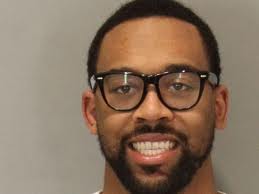RF Review: 360 is a Welcomed Eight-Lane Highway of Love
360 review 7/2/2012
By Kirkland Morris
360 is a welcomed eight-lane highway of love, with emergency shoulders, off ramps and side roads that lead to some obscure yet interesting places. Who would have thought a tweak of the old adage “˜love is in the eye of the beholder’ would resonate so powerfully on screen? This film weaves through the connected lives of an assortment of people from a cheating international businesswoman to a sex offender who is trying to function post prison. Screenwriter Peter Morgan and director Fernando Meirelles do a pretty good job of juggling not only this lot of characters and their emotional baggage, but they also creatively engage you in a voyeuristic vantage into the lives of people across the world ““ and excitingly force the viewer to ask and answer the curious question “˜what if?’
The partially subtitled story begins in Vienna where we meet a nervous young lady who meets up with, for all intense purposes, a high-level pimp in the escorting business. She’s accompanied by her reserved sister who is against her older sister’s new work choice. One of her first customers is Jude Law who plays a businessman that would like to have an affair but is interrupted by his own business dealings.
Jude Law‘s character is married to a businesswoman, played by Rachel Weisz, who is having an affair with an up-and-coming photographer. The photographer is actually in love with her character and wants to keep seeing her, although
This film weaves and sews together the lives of these characters that come in and out like good ice skaters performing to sounds of a well placed orchestra. Each story features its own struggle with love, or some bastardized form of it, while the characters’ lives are sewn together through encounters, conversations and music.
Although there are many great acting performances in the film, one of the more recognized, other than Jude Law and Rachel Weisz, is given by Anthony Hopkins as the sad father who has been desperately searching for his adult daughter who ran away after discovering his infidelities.
He travels long distances to view unclaimed bodies, in hopes that maybe he can put an end to his search. But if there was one storyline that would take home the award for most powerful, I would have to say that it would be the storyline of actor Ben Foster, who does a masterful job of portraying a newly released sex offender who’s not sure if he can cut it in civilization. Upon showing his emotion, from being thrust back into society, there is a scene at an airport that takes your breath away, while watching this character’s inner struggles spill out onto the screen.
Cinematographer, Adriano Goldman, more than did his job in capturing the look and feel of not only the characters and their emotions but of the various locations that were brought to life so well in the shots. By the time the film is over you feel as though you’ve traveled the entire time. Many of the shots manage to intertwine a sense of “independent film” that warms the screen, more often than not.
That being said, I could hardly go without mentioning Daniel Rezende‘s wonderful editing job. He edited this film on the marks and beats that should take a bow for its seamlessness that helped convey the central theme of the film, which highlights the choices we make at the forks in the roads of our lives.
The music choice for the film offered yet another interesting layer. Although often in other languages, the beats and tempos plugged in to its appropriate part like the various blood vessels that aide the heart in guiding our blood to its needed places.
The only downside, that some viewers might find a bit troublesome, is that with any large ensemble piece there is only so much time that can be spent on developing each of the stories. So although you get the gist of the vignettes, some might walk away feeling as though they wi



